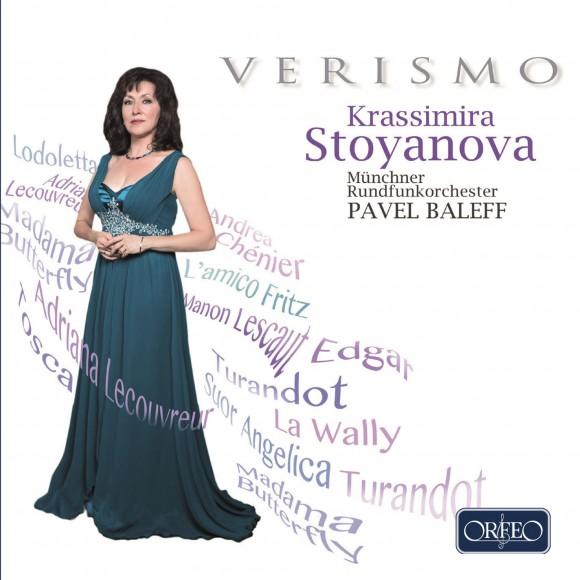Though Krassimira Stoyanova is known primarily as a Verdi soprano, her two new CDs show that she is equally impressive in works by Giacomo Puccini and other verismo composers.
“Verismo” (on Orfeo) is the title of her opera recital album in which the soprano is accompanied by the Münchner Rundfunkorchester (Munich Radio Orchestra), conducted by Pavel Baleff.

Orfeo






